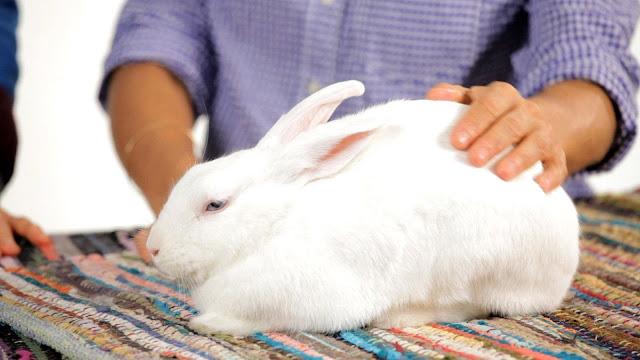Unveiling the World of Rabbits: A Conversation with an Expert on Behavior and Care
Embarking on the journey of understanding and caring for rabbits requires more than just basic knowledge. In an exclusive interview with renowned rabbit expert Dr. Emma Hopper, we delve into the intricate world of rabbit behavior and care. Dr. Hopper, with years of experience in veterinary medicine and a passion for these furry companions, shares valuable insights that every rabbit enthusiast needs to know.
Understanding Rabbit Behavior:
Dr. Hopper emphasizes that grasping rabbit behavior is key to providing optimal care. Rabbits are intelligent, social creatures with distinct communication styles. From thumping feet to various vocalizations, understanding these cues helps create a harmonious environment for your bunny friends.
"Observation is crucial," says Dr. Hopper. "Watch for signs of contentment, stress, or illness. A relaxed bunny will groom itself and flop onto its side, while stress might manifest in aggressive behavior or excessive hiding."
Creating a Stimulating Environment:
Rabbits thrive in an enriched environment. Dr. Hopper suggests incorporating mental and physical stimulation into their daily lives. "Provide a variety of toys, tunnels, and safe chewing materials. Boredom can lead to behavioral issues, so keep their environment dynamic."
Nutritional Needs:
Proper nutrition is at the core of rabbit care. Dr. Hopper advises a balanced diet consisting of hay, fresh vegetables, and high-quality pellets. "Hay is crucial for dental health, while vegetables provide essential vitamins. Limit sugary treats, as rabbits are prone to obesity."
Healthcare Essentials:
Regular veterinary check-ups are vital to ensure your rabbit's well-being. Dr. Hopper stresses the importance of vaccinations, especially against common rabbit diseases like myxomatosis and rabbit hemorrhagic disease (RHD). "Early detection is key. Monitor their weight, teeth, and fecal output regularly."
Social Interaction:
Contrary to the stereotype of aloof rabbits, Dr. Hopper highlights their social nature. "Rabbits thrive on companionship. If possible, consider having a bonded pair. If not, invest time in interacting with your bunny daily. Grooming and gentle petting help strengthen the human-rabbit bond."
Conclusion:
Our interview with Dr. Emma Hopper provides a glimpse into the nuanced world of rabbit behavior and care. Whether you're a seasoned rabbit owner or considering welcoming a bunny into your home, these insights offer a roadmap to fostering a happy, healthy, and fulfilling relationship with these adorable creatures. Stay tuned for more expert tips on rabbit care and behavior!



Comments
Post a Comment